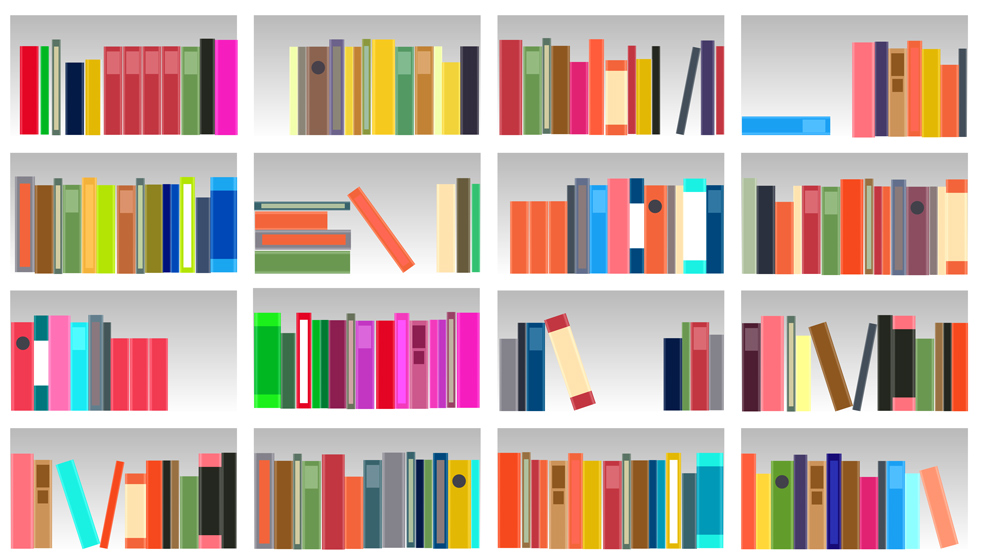
The tables in bookstores can be overwhelming: Every book cover looks appealing, every blurb glows with praise. Sometimes, you just need a recommendation from a human, someone you trust. Below, 10 members of the TED community — with very different points of view — share the books they think you’ll enjoy this summer. Their selections are wonderfully untethered to new releases and bestsellers, with a little something for everyone.
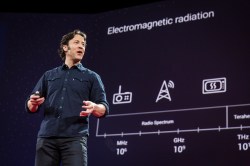 Mind-bending fiction, picked by David Eagleman
Mind-bending fiction, picked by David Eagleman
David Eagleman is a neuroscientist whose sensory vest may just expand the limits of human perception. But this TED speaker is also a writer — of both fiction (his Sum: Forty Tales from the Afterlives has been translated into 28 languages) and nonfiction (Incognito: The Secret Lives of the Brain was a bestseller). His recommendations highlight mind-bending fiction:
Labyrinths by Jorge Luis Borges. “An inspiration that never runs out of batteries for me; it shines a new light on everything. Borges follows no one’s rules but his own.”
The Bear by William Faulkner. “I bought this short novel for fifty cents at a garage sale when I was 17. The storytelling and language blew my socks off. I immediately became an English major.”
The Most Human Human: What Artificial Intelligence Teaches Us About Being Alive by Brian Christian. “A book about the wild frontiers of chatbots, it reveals more than expected about what it means to be made of flesh and blood.”
The Arrival by Shaun Tan. “A lovely, wordless story about the immigrant experience.”
Invisible Cities by Italo Calvino. “A series of very short stories that are all about the same thing: a single city in Kublai Khan’s empire. It’s mother’s milk for my own fiction writing.”
The Amazing Adventures of Kavalier & Clay by Michael Chabon. “A rare combination of perfect wordsmithery and limitless imagination.”
Last and First Men by Olaf Stapledon. “Science fiction written in 1930, it describes the future of humans two billion years in the future. Deep creativity.”
Things That Are: Essays by Amy Leach. “Hilarious essays that bounce effortlessly between the pedestrian and the cosmic, leaving the reader in a warm blanket of wonder.”
The Rise of Superman: Decoding the Science of Ultimate Human Performance by Steven Kotler. “An exciting book about the rising bar of peak human performance.”
.
.
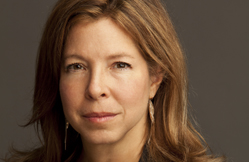 Books on art and race, picked by Anne Pasternak
Books on art and race, picked by Anne Pasternak
TED attendee Anne Pasternak will be the next director of the Brooklyn Museum, making her the first woman to lead one of New York’s encyclopedic art museums. For the past two decades, she’s directed Creative Time, staging artistic happenings in the wilds of New York City. Her recommendations focus on art, as well as on the legacy of slavery and racism:
Slavery by Another Name: The Re-Enslavement of Black Americans from the Civil War to World War II by Douglas A. Blackmon. “Over the past year, several people were shocked I hadn’t heard of this book. So I bought it and dove in. If you’ve ever questioned why there were struggles for equality between the end of slavery and the Civil Rights Movement in the US, this book illuminates the conditions that led to the disinvestment, misery and tragedy that have lasted for generations.”
Who We Be: The Colorization of America by Jeff Chang. “Don’t let the textbook look of this book stop you, because it’s awesome. No one writes more beautifully about race and culture than Jeff, the author of Can’t Stop Won’t Stop. Only he can make topical discussions of race and art into a page-turner.”
The Rise: Creativity, the Gift of Failure, and the Search for Mastery by Sarah Lewis. “As seen on last year’s TED stage, Sarah Lewis speaks to mastery.”
12 Years a Slave by Solomon Northup. “When filmmaker Steve McQueen told me this book was about to become [suggested] reading in our public school curriculum, I almost burst into tears. Bravo for art impacting education! Now that it’s on our school reading list, it should be on ours as well.”
Nick Cave: Epitome by Nick Cave et al. “In this brand-new coffee-table book, Nick Cave’s beaded and feathered Soundsuits pop off the page. You can almost feel these gorgeous creatures dancing around you. I confess that I haven’t read the essays yet, simply because the pictures are just so captivating.”
Art Studio America: Contemporary Artist Spaces edited by Hossein Amirsadeghi and Maryam Homayoun Eisler. “In this book, you get a glimpse at the creative spaces of some of America’s leading artists, like Chuck Close, Rachel Feinstein and Kiki Smith.”
Uncommon Grounds: New Media and Critical Practices in North Africa and the Middle East edited by Anthony Downey. “In countries with rich histories, changing boundaries and war/conflict, artists are sharing histories, reflecting on the past to see the present and speaking truth to power. Check out the thriving artistic practices emerging in the Middle East and North Africa.”
.
.
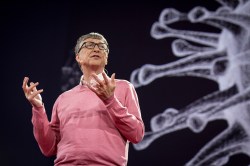 Illuminating nonfiction, picked by Bill Gates
Illuminating nonfiction, picked by Bill Gates
At TED2015, Bill Gates tried on the protective body suit worn by healthcare workers in Ebola field hospitals and gave a talk on epidemic readiness. He also selected some favorite books. His recommendations focus on business and our modern world:
Business Adventures: Twelve Classic Tales from the World of Wall Street by John Brooks. “Warren Buffett recommended this book to me in 1991, and it’s still the best business book I’ve ever read. Brooks offers sharp insights into the timeless fundamentals of business — like the challenge of building a large organization, hiring people with the right skills and listening to customers’ feedback.”
The Bully Pulpit: Theodore Roosevelt, William Howard Taft, and the Golden Age of Journalism by Doris Kearns Goodwin. “Doris Kearns Goodwin studies the lives of these presidents to answer a question that fascinates me: How does social change happen? Can it be driven by an inspirational leader, or do other factors have to lay the groundwork? In Roosevelt’s case, it was the latter; his famous soft speaking and big stick weren’t effective in driving reform until journalists rallied public support.”
On Immunity: An Inoculation by Eula Biss. “Eloquent essayist Eula Biss uses the tools of literary analysis, philosophy and science to examine the speedy, inaccurate rumors about childhood vaccines that have proliferated among well-meaning American parents. Biss took up this topic not for academic reasons, but because of her new role as a mom.”
Making the Modern World: Materials and Dematerialization by Vaclav Smil. “In this book, Smil examines the materials we use to meet the demands of modern life — like cement, iron, aluminum, plastic and paper. The book is full of staggering statistics: for example, China used more cement in just three years than the US used in the entire twentieth century. Smil is an original thinker who never gives simple answers to complex questions.”
How Asia Works: Success and Failure in the World’s Most Dynamic Region by Joe Studwell. “Business journalist Joe Studwell gives compelling answers to two key questions in development economics: How did countries like Japan, Taiwan, South Korea and China achieve sustained high growth? And why have so few other countries managed to do so?”
How to Lie with Statistics by Darrell Huff and Irving Geis. “First published in 1954, this book doesn’t feel dated, aside from a few anachronistic examples. (It’s been a long time since bread cost five cents a loaf.) In fact, it’s more relevant than ever. One chapter shows you how visuals can be used to exaggerate trends and give distorted comparisons. A timely reminder, given how often infographics show up in your Facebook and Twitter feeds these days.”
.
.
Incredible interviews, picked by Dave Isay
Dave Isay of StoryCorps, the winner of the 2015 TED Prize, has centered his life around the art of the interview — where stories of everyday individuals are surfaced and the gift of listening is given. His recommendations, naturally, gravitate toward magical conversations:
Up in the Old Hotel by Joseph Mitchell. “The astounding collection of profiles from a legendary The New Yorker writer. Too many good stories to list, but I named my daughter after ‘Mazie,’ his profile of the foul-mouthed ticket taker/bouncer/angel of a low-rent movie theatre catering to homeless men in New York.”
They Called Me Mayer July: Painted Memories of a Jewish Childhood in Poland Before the Holocaust by Barbara Kirshenblatt-Gimblett and Mayer Kirshenblatt. “Barbara Kirshenblatt-Gimblett spent forty years interviewing her father about the Polish town where he grew up. After decades of prodding, Mayer — a retired house painter — picked up a brush and began painting his memories of the town as well. The book creates a singular portrait of a world wiped off the face of the earth.”
Maus: A Survivor’s Tale by Art Spiegelman. “In this graphic novel — one of the greatest works of the twentieth century, in my opinion — Spiegelman interviews his father about living through the Holocaust.”
The Bridge: The Building of the Verrazano-Narrows Bridge by Gay Talese. “An ode to the men who built the Verrazano-Narrows, it centers around the question, ‘Who are the high-wire walkers wearing boots and hard hats, earning their living by risking their lives in places where falls are often fatal and where the bridges and skyscrapers are looked upon as sepulchers by the families and coworkers of the deceased?’”
Just Mercy: A Story of Justice and Redemption by Bryan Stevenson. “I’m currently reading this autobiography. As Bryan Stevenson said in his TED Talk: ‘We will ultimately not be judged by our technology; we won’t be judged by our design; we won’t be judged by our intellect and reason. Ultimately, you judge the character of a society by how they treat the poor, the condemned, the incarcerated.’ This book is not to be missed.”
The Four Things That Matter Most: A Book About Living by Ira Byock. “A small, beautiful book which reminds us to say the important things we want to say to the people we care about.”
.
.
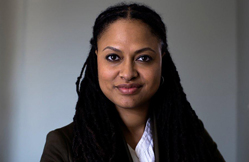 Haunting novels, picked by Ava DuVernay
Haunting novels, picked by Ava DuVernay
Ava DuVernay directed Selma, nominated for the Oscar for Best Picture this year. And this TED attendee is also a big reader. Her recommendations are all about beautiful, heartfelt fiction:
Ruby by Cynthia Bond. “Oprah recommended this book to me, and it is astounding. The writer has such a majestic command of language; she catapults everyday words into rare air with lines that sear into your memory. The characters Ruby and Ephraim shimmer with vibrancy — they show the complications of pain and joy, all messily and beautifully together. A total triumph.”
The God of Small Things by Arundhati Roy. “This book scans the terrain of the personal, the political and the spiritual in incredible ways. The fact that so many millions of people have related to Estha and Rahel — twins in Kerala, India — illustrates the power of storytelling and the fact that within cultural specificity lies a gorgeous universality.”
Their Eyes Were Watching God by Zora Neale Hurston. “Written in 1937 by a black woman artist extraordinaire, this treasure breathes with awe, ache and everything in between. Zora Neale Hurston’s prose is legend. Her story is epic, but her approach is intimate. I can’t say enough about this work.”
A Small Place by Jamaica Kincaid. “A small novel filled with massive ideas, wrapped in language that allows us to taste and smell a whole new life — one as a tourist experiencing the beauty of Antigua and unaware of the indignities required to make such a visit possible. It’s about colonialism, patriarchy and injustice and pushes the reader to examine their own ideas, expectations and identity.”
.
.
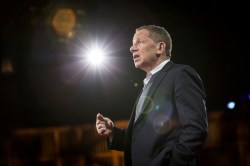 Books on historical moments, picked by David Rothkopf
Books on historical moments, picked by David Rothkopf
Foreign policy thinker David Rothkopf gave a talk at TED2015 — an experience that flipped his thinking. His book recommendations are for those interested in history, as well as on its influence on the present:
Lenin’s Tomb: The Last Days of the Soviet Empire by David Remnick. “If I could have written one book in my life, it would probably be this one. One of the best combinations of storytelling, history writing and analysis that I have seen, about the end of the Soviet Union.”
A Problem from Hell: America and the Age of Genocide by Samantha Power. “The best book about one of the most horrific topics imaginable. The author is now the US Ambassador to the UN and must struggle with these issues.”
We Wish to Inform You That Tomorrow We Will Be Killed with Our Families: Stories from Rwanda by Philip Gourevitch. “Another evocative look at the Rwandan genocide. It’s a good companion piece to Power’s book because it provides more of the human story, in the most heartrending way possible.”
Joan of Arc: A History by Helen Castor. “I’m fascinated by Joan of Arc and, until recently, by the lack of a really good, modern biography of her. This book fills that void. It tells the story of one of those extraordinary lives that, even when stripped of mythologies, mesmerizes because it illustrates how single individuals can make a difference.”
The Secret History of Wonder Woman by Jill Lepore. “This book is about the man who invented Wonder Woman, and the women around him who reflected historical changes in the role of women in society. It’s smart and funny, a refreshing look into a corner of cultural history that I would never have thought to explore.”
Age of Ambition: Chasing Fortune, Truth and Faith in the New China by Evan Osnos. “To understand the century ahead, you need to understand China. To understand China without actually going there, read this new, much-heralded book. It deserves all the awards it has won. But really: you have to go there.”
1491: New Revelations of the Americas Before Columbus by Charles C. Mann. “This history of the Americas turns upside down almost everything you learned in school. It drives home the message that the history we know may never have happened.”
The Good Spy: The Life and Death of Robert Ames by Kai Bird. “A terrific and true spy story that makes the fictional kind pale in comparison.”
Flash Boys: A Wall Street Revolt by Michael Lewis. “Michael Lewis is one of the best at telling a compelling story about a few people — and in so doing, opening up a window into big issues of our times. He also knows and writes about finance better than any of his peers. The result: a book that proves how the financial system is just as rigged and corrupt as you thought it was.”
The Second Machine Age: Work, Progress and Prosperity in a Time of Brilliant Technologies by Erik Brynjolfsson and Andrew McAfee. “Our economy is changing profoundly, creating new questions about what jobs will look like in the future and how people will make meaningful lives for themselves. Few have even recognized the problem, much less come up with answers. Brynjolfsson and McAfee are doing both.”
The Idea Factory: Bell Labs and the Great Age of American Innovation by Jon Gertner. “My dad worked at Bell Labs, and my first summer jobs were there as well. It epitomized the power of pure research, and showed how big science and big government could collaborate. It is gone now, and its disappearance raises many questions about our future.”
Americanah by Chimamanda Ngozi Adichie. “This is the last novel I read. It’s the story of a Nigerian woman who comes to America and then returns home, full of culture shock and self-discovery. It’s beautifully done and will have you looking at the world around you in a very different way.”
My Promised Land: The Triumph and Tragedy of Israel by Ari Shavit. “A terrific, brutally honest look by an Israeli at the conundrum of loving his country but also understanding its complicated, often-disturbing historical roots and current reality.”
.
.
Books on creativity, picked by Tony Fadell
At TED2015, Tony Fadell — the man behind the iPod and Nest — managed to turn an observation about the little stickers on fruit that you inevitably forget to peel off before eating into an intriguing TED Talk. His book recommendations focus on the bounds of creativity:
Thinking, Fast and Slow by Daniel Kahneman. “Kahneman is brilliant. His latest book offers a fascinating look at how our brains work, and how they push us to act in ways that aren’t always in our best interest.”
How Children Succeed: Grit, Curiosity, and the Hidden Power of Character by Paul Tough. “By offering evidence that traits like empathy, determination and self-control tend to be better predictors of success than IQ, Tough will make you think differently about raising kids in a highly competitive world.”
Creativity, Inc.: Overcoming the Unseen Forces That Stand in the Way of True Inspiration by Ed Catmull. “A fantastic read, and hugely applicable to what we do at Nest. It offers a great perspective on how an experienced leader has guided a team of creative, dedicated people to develop amazing things.”
The Hard Thing About Hard Things: Building a Business When There Are No Easy Answers by Ben Horowitz. “Starting a company is never easy — even when you’ve done it before. Ben’s advice is useful, honest, profane and essential for understanding why some companies fail and others succeed.”
The Art of War by Sun Tzu. “It’s hard to believe that a 2,000-year-old book could still be relevant for businesses today, but Sun Tzu’s masterpiece is as applicable to the world we live in as ever.”
.
.
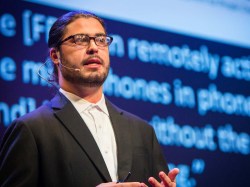 Books on privacy, picked by Christopher Soghoian
Books on privacy, picked by Christopher Soghoian
TED Fellow Christopher Soghoian is a privacy researcher whose unsettling research suggests that we are just seeing the start of government surveillance. His recommendations are perfect for those interested in security:
This Machine Kills Secrets: Julian Assange, the Cypherpunks and Their Fight to Empower Whistleblowers by Andy Greenberg. “Ignore the references to WikiLeaks in the title. To understand how and why disruptive technologies like Bitcoin and Tor exist, you need to read this well-written book on the history of the cypherpunk movement.”
Countdown to Zero Day: Stuxnet and the Launch of the World’s First Digital Weapon by Kim Zetter. “This page-turner reads like a spy thriller, but is actually a well-reported true story. Welcome to the scary new world of cyberwar, in which the US government plays the starring role.”
Dragnet Nation: A Quest for Privacy, Security and Freedom in a World of Relentless Surveillance by Julia Angwin. “One of the best technology journalists in the US documents her efforts to protect her digital privacy. It’s part self-help book, but also a sobering view of how stacked the privacy deck is against us all.”
Data and Goliath: The Hidden Battles to Collect Your Data and Control Your World by Bruce Schneier. “Bruce is the information security community’s ambassador, a thought leader who can explain privacy, surveillance and data security in an accessible way. This book isn’t a deep dive, but an introduction to topics that should concern us all.”
Spies for Hire: The Secret World of Intelligence Outsourcing by Tim Shorrock. “Think Blackwater meets the NSA. Tim Shorrock does a great job of exposing the mercenaries and beltway bandits who are fighting for a piece of the $70 billion a year intelligence community budget.”
It’s Complicated: The Social Lives of Networked Teens by danah boyd. “Every time I hear someone proclaiming that ‘kids today just don’t care about privacy,’ I tell them to buy this book. Kids do care and are taking steps — you just can’t see it.”
.
.
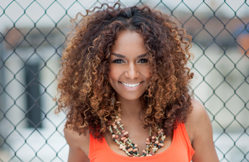 Books on identity, picked by Janet Mock
Books on identity, picked by Janet Mock
In March, Janet Mock was named one of the “30 Most Influential People on the Internet” by TIME Magazine. A TED2015 attendee, she is the host of MSNBC’s So Popular! and the author of Redefining Realness: My Path to Womanhood, Identity, Love & So Much More. Her recommendations focus on explorations of gender, race and trans identity:
Sister Outsider: Essays and Speeches by Audre Lorde. “This collection of work from the black lesbian poet and feminist provides a lifemap to live and organize for us all.”
ain’t i a woman: black women and feminism by bell hooks. “One of hooks’ most widely taught texts, it centers the lives of black women and their struggles within a feminist context.”
Captive Genders: Trans Embodiment and the Prison Industrial Complex edited by Eric A. Stanley and Nat Smith. “This collection is a crucial text, furthering our understanding of the over-policing and criminalization of trans and gender-nonconforming communities, from the 1969 Stonewall Riots through today.”
The Fire Next Time by James Baldwin. “Released the same year as the March on Washington, Baldwin — an openly gay black male writer and intellectual — offers a torching perspective on being black in America.”
This Bridge Called My Back: Writings by Radical Women of Color edited by Cherríe Moraga and Gloria Anzaldúa. “This edition of feminist writings gave voice to a collective of women who were silenced by the mainstream feminist, gay and racial justice movements. I can’t recommend this book more.”
Transparent: Love, Family and Living the T with Transgender Teenagers by Cris Beam. “This memoir follows one woman’s journey as she enters the lives of four low-income trans girls in Los Angeles, and watches as they grapple with family, poverty, intolerance and their own bodies.”
Sister Citizen: Shame, Stereotypes and Black Women in America by Melissa V. Harris-Perry. “This book breaks down how women of color struggle to stand upright in a ‘crooked room’ filled with distorted images — ‘mammy,’ ‘jezebel,’ ‘sapphire’ — that unfairly reflect them.”
Sula by Toni Morrison. “Everything Morrison writes is gold, but Sula is one of those books that I return to every few years and I always find new nuggets of wisdom in it. The novel traces the sisterhood between Sula and Nel, and the diverging paths their lives take.”
Changing My Mind: Occasional Essays by Zadie Smith. “It’s the only nonfiction collection from one of my favorite contemporary writers. Smith covers pop culture, race, representation and literary analysis, including an ode to my favorite novel of all time, Their Eyes Were Watching God.”
.
.
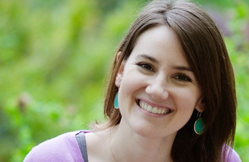 Thought-provoking fiction, picked by Nadia Goodman
Thought-provoking fiction, picked by Nadia Goodman
TED’s social media editor Nadia Goodman is a celebrity, at least in our office, for her stellar book recommendations. On her Instagram channel Tiny Book Reviews, she sums up books in well-wrought paragraphs alongside snapshots of the books in the perfect environment. Her latest recommendations:
The Transcriptionist by Amy Rowland. “A lonely woman in New York City, the last transcriptionist at a major newspaper, discovers a story she can’t forget. It’s a quiet, beautifully observed book about who gets remembered, who gets forgotten and how we decide whose stories deserve to be told. One of my favorite finds in a long time.”
Boy, Snow, Bird by Helen Oyeyemi. “A loose retelling of Snow White, set in New England in the mid-1900s. It’s a brilliant exploration of beauty, race, identity and the pain we inflict on others to protect ourselves. The ending is just …*mind blown.*”
Dept. of Speculation by Jenny Offill. “I devoured this book in one sitting. It’s insightful, heartbreaking, brutally honest and peppered with such a dry sense of humor that I found myself laughing out loud. More than anything, it humanized the trials of love and marriage.”
Prelude to Bruise by Saeed Jones. “A gut-wrenching collection of poetry about sexuality, race and identity, as tender as it is angry. My personal favorite poems: ‘Boy at Edge of Woods’; ‘Daedalus, After Icarus’; ‘Jasper, 1998’; ‘Apologia’; ‘History, According to Boy.’”
How to Get Filthy Rich in Rising Asia by Mohsin Hamid. “A fantastic story about blind ambition, with a fresh tone and tight, fast-paced prose. It mimics a self-help book — a playful guise for an unexpectedly tender story. I especially love that it’s written in the second person, so the story feels unique and universal all at once.”
Tampa by Alissa Nutting. “Grossly disturbing, but so compelling — I couldn’t turn away. It’s a fascinating foil to Lolita; a scathing indictment of our common assumption that women’s sexuality, especially when paired with beauty, can’t be truly predatory or, worse, that teenage boys are lucky to be preyed on. It’s great fodder for discussion.”
Two Boys Kissing by David Levithan. “If you haven’t read a young adult novel recently, you should. There’s an explosion of great writing for teens, and Levithan’s book is a shining example that weaves together beautiful, brave stories of boys growing up gay in small town America. In a stroke of genius, it’s narrated by the collective voice of the men who died in the AIDS crisis.”
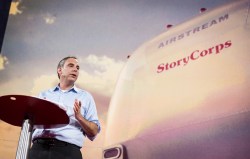
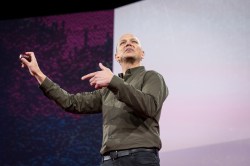
Comments (34)